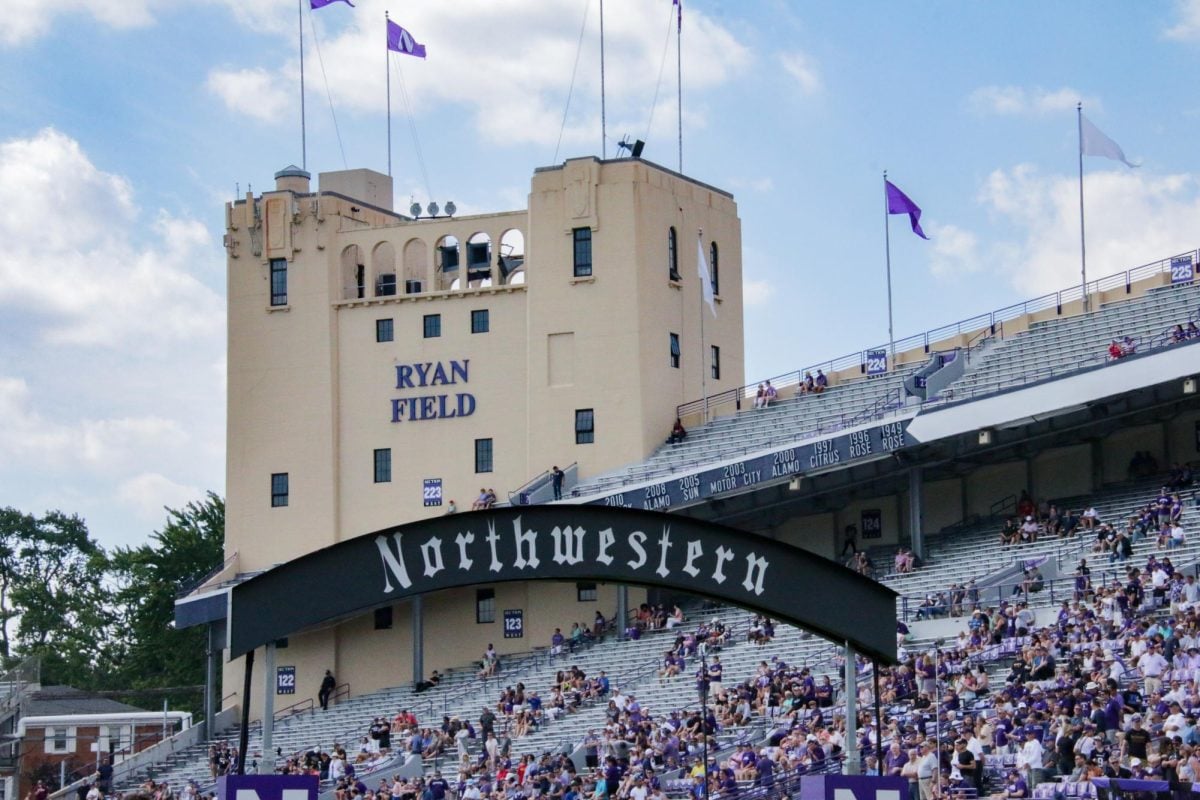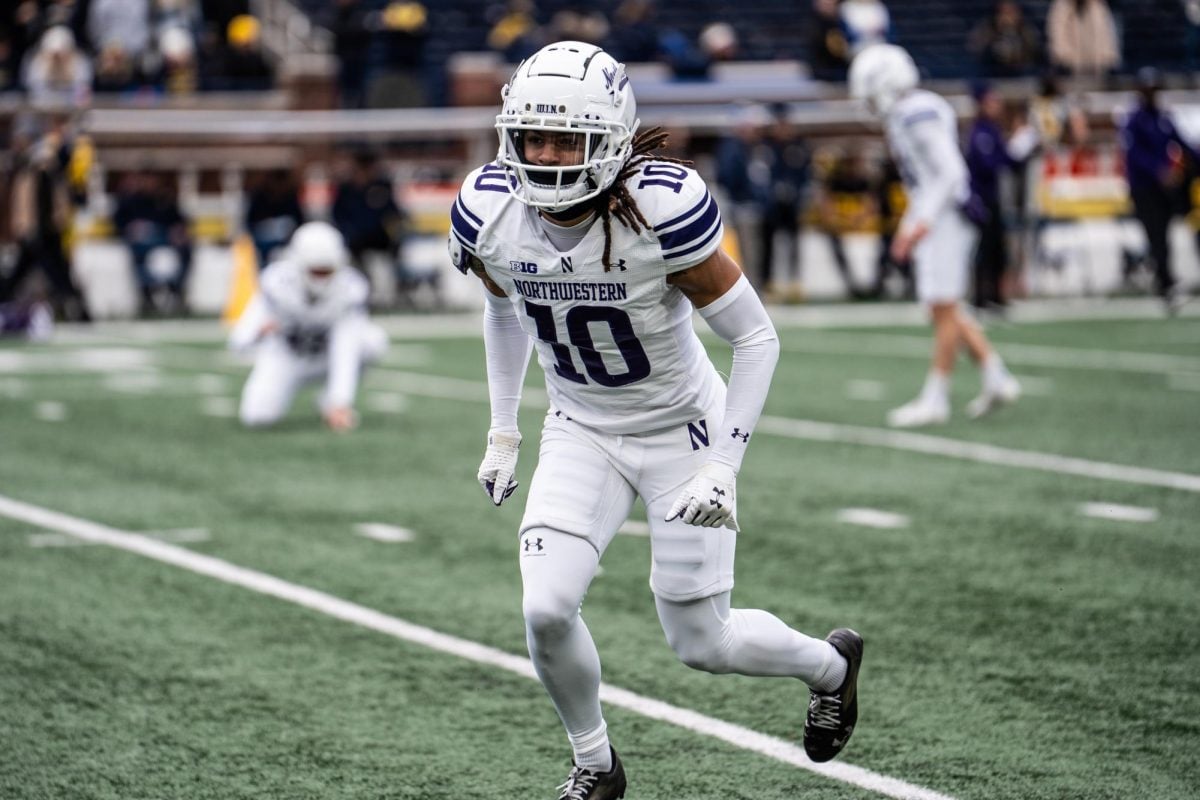Three former Northwestern football players described a “culture of enabling racism” to The Daily, recalling multiple racist actions and remarks from both coaching staff and players.
All three players, who played for the team in late 2000s, also corroborated some of the hazing allegations reported by The Daily on Saturday.
Ramon Diaz Jr., a Latino offensive lineman for Northwestern from 2005 to 2008, said his experience on the football team was hostile as a non-white player.
“I didn’t feel like I could be anything other than white,” Diaz told The Daily. “We never felt like we could be ourselves. We had to fit in by being white or acting white or laughing at our own people.”
Another player, who asked to remain anonymous and played through the 2009 season, said racism on the team was often blatant. He alleged head coach Pat Fitzgerald would ask Black players and coaches to cut off longer hairstyles — including dreadlocks — so that they were more in line with what Fitzgerald called the “Wildcat Way.”
The player said this phrase — along with “good, clean American fun” — was used often by coaches to reference how they wanted players to look and act.
The first anonymous player said that white players who had long hairstyles were not asked to alter their appearances.
“Those are two phrases you would hear a lot around the program that referred to the sentiment of ‘fall in line,’” the player said. “If you were not in line with the “Wildcat Way,” Coach Fitz or any one of the coaches will be quick to say like, ‘yeah, check your scholarship.”
Fitzgerald’s agent declined The Daily’s request for comment.
A second anonymous player, a former offensive lineman who is Black, told The Daily a similar story about Fitzgerald asking a member of the coaching staff to cut off his dreadlocks.
“The racist stuff… the stuff that refers to how Black players are treated, in my mind, that was a form of hazing,” the first anonymous player said.
University spokesperson Jon Yates told The Daily that the University was not aware of these allegations.
“The alleged ‘racist commentary and behavior toward non-white players’ by Coach Fitzgerald and members of his staff would be entirely unacceptable and inconsistent with our culture and values, if true,” Yates wrote in an email. “As we do with any allegation, we will immediately address the accusations and any findings will be considered.
The second anonymous player agreed, adding racism was central in the program’s culture.
“There was a certain culture of enabling racism and other microaggressions that I had to experience and that other offensive linemen that were people of color had to experience,” the second player said.
Diaz, the former offensive lineman, is now a clinical therapist. He said the program’s culture had a profound mental impact on him. He was diagnosed with post-traumatic stress disorder after graduating from Northwestern, and said that his time on the football team was a major factor in that diagnosis.
After graduating he would have flashbacks of things that happened in the football locker room and nightmares, he said.
“The fact that I’m still going to a therapist and talking about these things after more than 10 years is indicative of the mental health state I was left in,” Diaz said. “I didn’t even watch a football game again for almost five years after I left Northwestern. It was that negative of an experience for me that I didn’t want anything to do with the sport.”
Diaz described several racist remarks players and coaches said to him. One teammate asked him why he didn’t play soccer instead of football. He said he was also forced to shave “Cinco de Mayo” into his hair during a tradition where freshmen would shave messages on their heads.
Both Diaz and the second anonymous player detailed an instance in which a former offensive line coach joked by asking Diaz how to clean a dirty room. The coach then made a racist joke about how Diaz’s family must know how to clean houses, both former players said.
Diaz said he heard the same coach tell a Black teammate to stop wearing certain hats because he “wasn’t in the hood anymore,” before calling the way he walked a “gangster walk.”
He also said he once heard a player tell another Black teammate to show him “how monkeys act.”
“Your Blackness was not allowed to shine through, whether it was how you carried yourself all your way down to your hair,” the first anonymous player said.
The second anonymous player added that he often felt like the team was segregated by race. He said the defensive side of the ball had more Black players, while the offensive side was often majority white. That made it difficult to be an offensive player of color, he said.
“A lot of people ended up transferring, particularly off the offensive side of the ball, because it was a very racially segregated team,” he said.
Diaz agreed the team “absolutely” felt segregated at times, especially on the offensive line. By the end of his time at Northwestern, Diaz said he felt “completely alienated” from his teammates and felt he had to act white to fit in.
“The topics of most of those conversations (with his therapist) are around my self worth,” Diaz said. “Which is a very common outcome of someone who has been under psychological control and manipulation, and abuse.”
All three players also confirmed a hazing tradition called the “car wash” existed and was part of a larger system of hazing on the team.
This story has been updated to include a player’s direct quote in the lede. This story has also been updated to include University comment.
Email: NicoleMarkus2025@u.northwestern.edu
Twitter: @nicolejmarkus
Email: alycebrown2025@u.northwestern.edu
Twitter: @alycebrownn
Email: colereynolds2026@u.northwestern.edu
Twitter: @charcole27
Related Stories:
— Former NU football player details hazing allegations after coach suspension
— University president Michael Schill says he “may have erred” in determining Pat Fitzgerald sanction
— Investigation finds evidence of hazing in football program, Pat Fitzgerald suspended



















